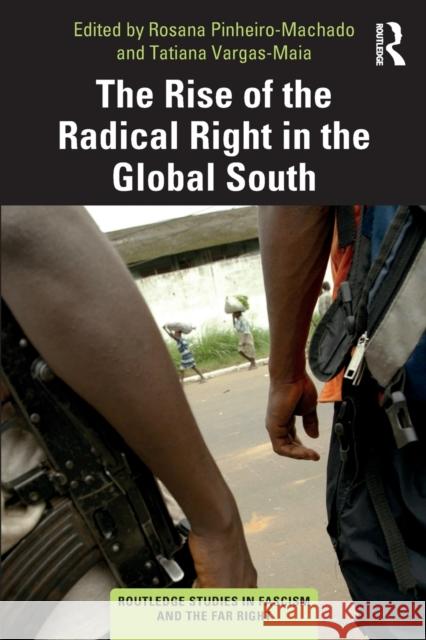The Rise of the Radical Right in the Global South » książka
The Rise of the Radical Right in the Global South
ISBN-13: 9781032040356 / Angielski
The Rise of the Radical Right in the Global South
ISBN-13: 9781032040356 / Angielski
(netto: 180,76 VAT: 5%)
Najniższa cena z 30 dni: 186,33
ok. 22 dni roboczych.
Darmowa dostawa!
The Rise of the Radical Right in the Global South is the first academic study—adopting an interdisciplinary and international perspective—to offer a comprehensive and groundbreaking framework for understanding the emergence and consolidation of different radical-right movements in Global South countries in the twenty-first century.
The Rise of the Radical Right in the Global South is the first academic study—adopting an interdisciplinary and international perspective—to offer a comprehensive and groundbreaking framework for understanding the emergence and consolidation of different radical-right movements in Global South countries in the twenty-first century.
From deforestation and the anti-vaccine movement in Bolsonaro’s Brazil to the massacre of religious minorities in Modi’s India, the rise of the radical right in the Global South is in the news every day. Not long ago, some of these countries were globally celebrated as emerging economies that consolidated vibrant democracies. Nonetheless, they never overcame structural problems including economic inequality, social violence, cultural conservatism, and political authoritarianism. Featuring case studies from Brazil, India, the Philippines, and South Africa, and more generally from Africa and Latin America, this book analyses future scenarios and current alternatives to this political movement to the radical right. It proposes a shift of focus in examining such a trend, adopting a view from the Global South; conventional theoretical tools developed around the experience in Global North countries are not enough. The authors show that the radical right in the Global South should be analysed through specific lenses, considering national historical patterns of political and economic development and instability. They also warn that researching these countries may differ from contexts where democratic institutions are more reliable. This does not mean abandoning a transnational understanding of the radical right; rather, it calls for the opposite: the chapters examine how the radical right is invented, adapted, modified, and resisted in specific regions of the globe.
This volume will be of interest to all those researching the radical right and the politics of development and the Global South.











